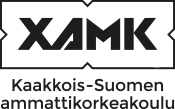Seasonality and tourism planning (5 cr)
Code: MR00AF14-3007
General information
Enrollment
12.04.2021 - 25.04.2021
Timing
31.07.2021 - 31.12.2021
Number of ECTS credits allocated
5 op
Virtual portion
5 op
RDI portion
2 op
Mode of delivery
Distance learning
Teaching languages
- Finnish
Degree programmes
- Degree Programme in Tourism and Service Business
Teachers
- Tommi Pantzar
Teacher in charge
Tommi Pantzar
Groups
-
MRMI21SDDouble Degree Tourism and Service Business
-
MRMI19KP
-
MRKT19SVTourism and service business, online studies
-
MRMI19SP
-
MRMI19SV
Objective
You are able to - understand the aspects of tourism planning and development at different levels -understand the processes of tourism planning and development -understand the concept of seasonality and its significance in tourism -take advantage of seasons and other regional strengths in tourism planning and development -to apply the practices and tools of tourism planning and development and connect them with company level objectives
Content
What are the different aspects of tourism planning and development at different levels? What are the processes and tools of tourism planning and development? How does seasonality affect tourism demand and supply? How do you cope with seasonality and utilize it and other regional characteristics in tourism planning and development? How do you apply the practices and tools of tourism planning and development and connect them with company level development?
Materials
The course material will be published in Learn platform. You will get it at the beginning of the course.
Teaching methods
What kind of issues and models are there in tourism planning and development? Content of the course: How to cope with different kinds of private and public sector processes in regional tourism planning and development? How to utilize seasonality, nature and culture as pulling factors in the product development in a sustainable way? How are the company level and regional level targets related to each other?
Exam schedules
Yo can adjust this course progress to your own timetables. After comleting previous part you will be able to continue to next part.
Each part has it's own deadline, but you may move forward faster.
Student workload
This course is 5 ECTS points, which means 5 x 27 hours of student work.
Workload:
• Recorded online lectures volyntary online meetings, literature and other materials: about 45 h
• Assignments: one essay and an online exam: 30h
• Case (Project work) and commenting other projects: about 60h
Content scheduling
Part 1: Orientation to Seasonality in tourism planning. Online lectures and assignment #1.
Part 2: Seasonality and sustainability in tourism, regional level: Online lectures and assignment #2 (exam).
Part 3: Company level and tourism plannin: Independent project work with some company, assignment #3A and #3B.
Evaluation scale
1-5
Assessment criteria, good (3)
Students can a) use professional vocabulary of tourism planning and seasonality systematically b) look for information about and for tourism planning and development in the key information sources of the field c) identify irrelated tasks of tourism planning d) work together with customers, users and target groups in tourism planning e) use the key models, methods, software and techniques of tourism planning and developing f) work as team members in a goal-oriented way g) apply the ethical principles of the professional field critically
Assessment methods and criteria
You are able to understand different viewpoints about principles of developing tourism and travel.
You are able to learn the factors which are having an effect on planning in different regional levels.
You are able to take advantage of the seasons and other regional strength in planning the tourism supply.
You are able to to link company objectives of planning and development to the regional ones.
Qualifications
’Hospitality industry’ module or corresponding knowledge and skills
